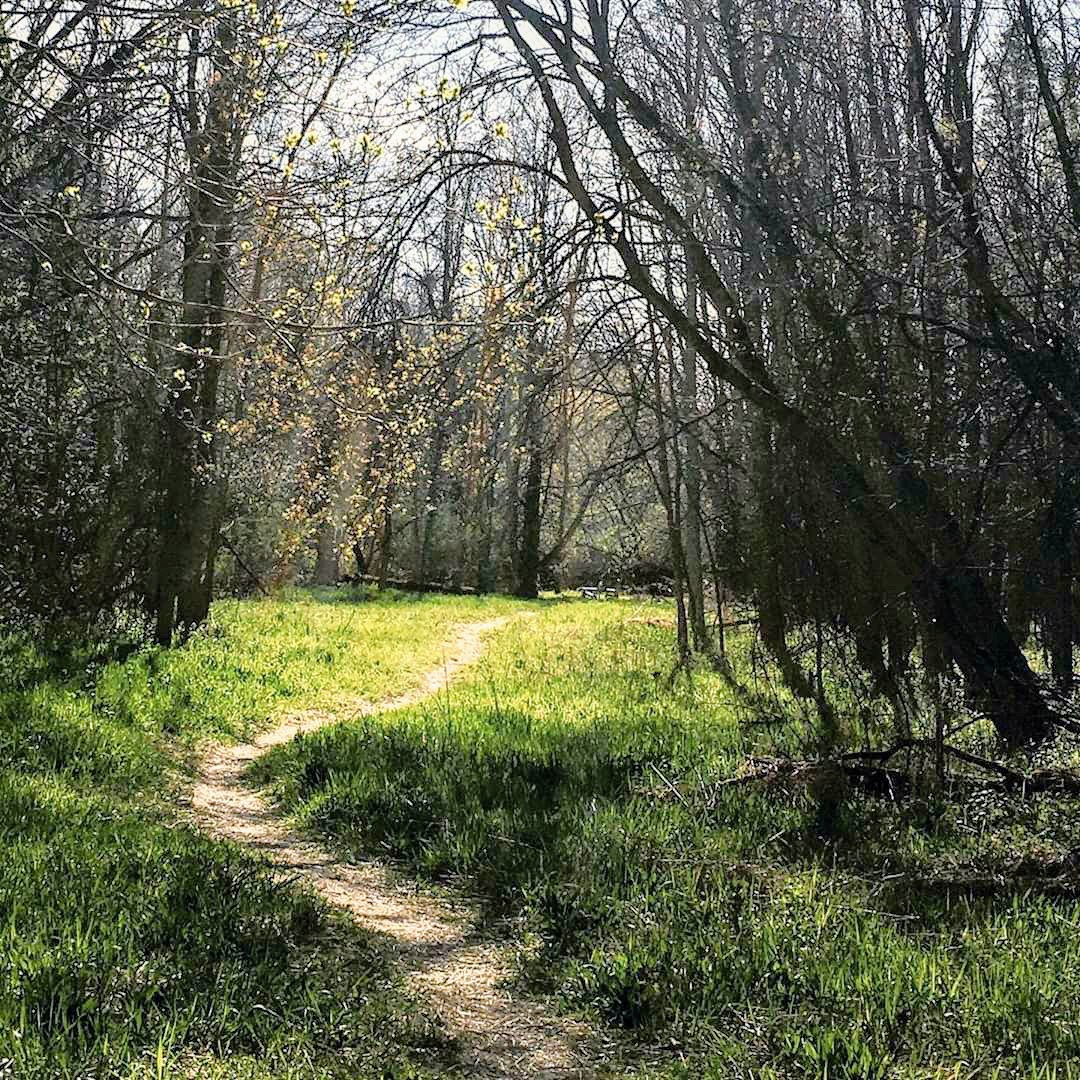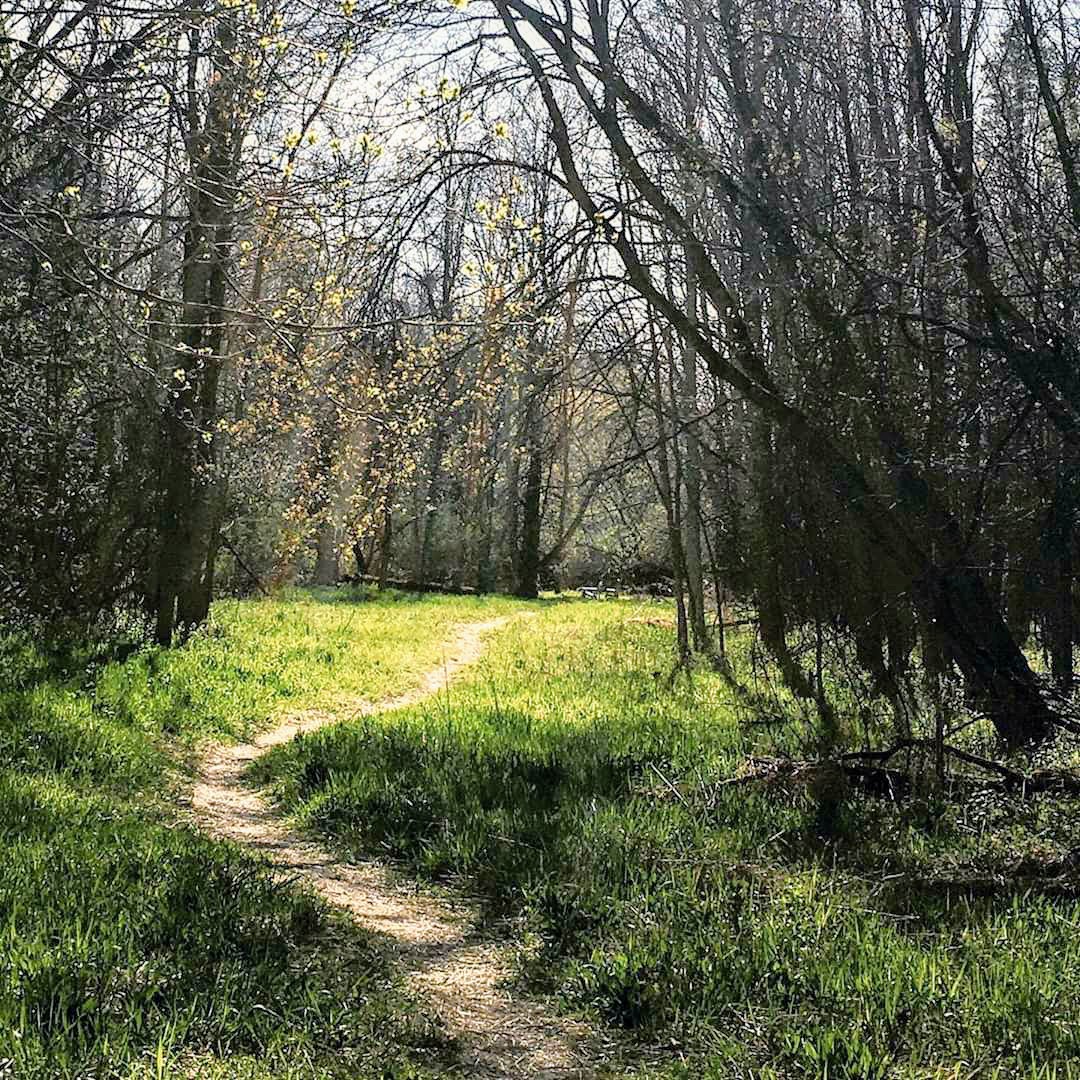Welcoming* Inclusive* Supportive* Engaged*

Excerpts from: Walking by Hannah Campbell Gustafson
Hannah is the outreach coordinator at Plymouth Congregational Church in Minneapolis, MN, as well as the treasurer for the Mental Health Network, UCC.
A recent lectionary text that has been sticking with me was Luke 24:13-35. The story told includes two people walking from Jerusalem to Emmaus. As they are walking and talking, Jesus joins them, though they don’t realize it is Jesus. In this story it appears that walking is serving as transportation, though the two people are enjoying their conversation as well.
I sometimes walk just so my dog, Óscar, can go pee. Sometimes I walk to get a break from my toddler, or to talk on the phone with a friend. Some of my most enjoyable walks are when I’m just walking to enjoy walking and all that comes with it—the people-watching, the wind and sun on my face, the bird calls, the views of various houses and yards and gardens. I’ll admit, though, that sometimes I feel guilty about these walks, like I should be more productive while on them.
This made me wonder about Jesus’ purpose, walking here. It seems to me that he’s not walking simply for transportation. (He’s recently been resurrected!) He does seem to be enjoying some connection with the other two people and enjoying their discussion (even as they don’t know who he is). I like to imagine that he’s just appreciating walking, that he’s savoring the people watching, the sun on his face, and the company. They’re talking enough that I don’t imagine they’re speed walking, but instead are walking at a fairly leisurely pace. Their lives are stressful, and it is good for their hearts, minds, and bodies to be walking like this.
I hope to keep this image of Jesus, savoring the experience of walking, in my mind. May I learn to more literally walk as Jesus walked, even as I strive to follow him in all that I do.
Please review these video links on Suicide: Prevention, Intervention, Postvention and Trauma Informed Congregations.
Suicide: Prevention, Intervention, Postvention
Trauma-Informed Congregations









